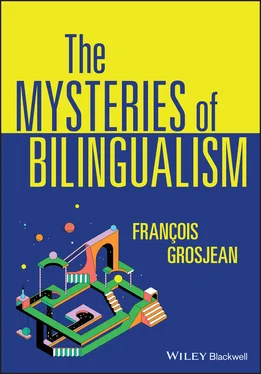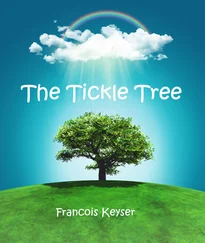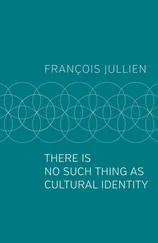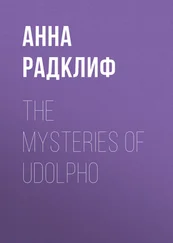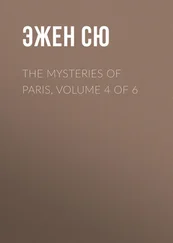To the language knowledge question, “… which other languages, if any, do you speak well enough in order to be able to have a conversation?,” 54% of the respondents are able to hold a conversation in at least one additional language, 25% are able to speak at least two additional languages, and 10% are conversant in at least three languages. This confirms what everyone knows: many Europeans know other languages! Of course, there is a great deal of variability with countries like Luxemburg, Latvia, The Netherlands, Malta, Slovenia and Sweden having percentages of “at least one other language” above 90%, and countries like Hungary, Italy, the United Kingdom, and Portugal having less than 40%. English dominates as the most common language that Europeans are most likely to be able to speak (38%), followed by French (12%), German (11%), Spanish (7%) and Russian (5%).
Four years after the 2012 survey, Eurostat published Foreign language skills statistic s 12in which levels of second language skills were examined. The results were equally varied for those who know their best-known foreign language at a proficient level (this means understanding a wide range of demanding texts, using a language flexibly, and mastering the language almost completely). Thus, more than half of respondents in Luxemburg, Sweden and Malta reached this proficiency level, whereas less than a quarter of the British, French, Polish, Romanians, Czechs and Italians did so.
With regard to language use, Europeans and their languages gives some interesting results. As we saw above, 54% of Europeans mentioned one other language when asked the question about the additional languages they speak well enough in order to be able to have a conversation. But when asked, “How often to do you use your first additional language?,” the mean percentage dropped down to 24% for everyday or almost everyday use. Thus, one in four Europeans are bilingual. Of course, once again there is a lot of variation, with percentages as high as 67% for Luxemburg, 49% for Malta, 44% for Latvia, 41% for Denmark, and so on, and as low as 7% for Portugal, 9% for Italy (but keep in mind that many Italians are bilingual in a regional dialect and Italian), and 11% for Poland. Two of the countries we discussed in the first part of this chapter, Belgium and the United Kingdom, have 29% and 28% respectively.
France and Switzerland are worth discussing separately. For France, the percentage given for daily or almost daily use is 19%, a figure that is very close to that of a large survey, “Etude de l’histoire familiale,” conducted in France itself in 1999 by the French Institute for Demographic Studies (INED). Three language questions were asked, and the third one gets at what we are interested in: “… do you find yourself talking with people close to you (partner, parents, friends, colleagues, store keepers…) in a language other than French? If so, which is it/are they?.” The first thing to note was that some 400 different languages were mentioned, a number that clearly shows that France is multilingual even though officially it is monolingual. There are regional languages, but most with far fewer speakers than before, and many immigrant languages such as Arabic, Berber, Turkish, Portuguese, Spanish, Chinese, and so on. And to the question asked, 21% of the respondents stated that they speak a language other than French in their everyday life. We should note that many more inhabitants in France’s overseas territories use two languages regularly: 57% in Mayotte, 41% in New Caledonia, 38%, on Reunion Island, and so on.
As for Switzerland, we saw above that in 2012, Swiss Statistics had stated that the 2010 census had shown that a mere 15.8% of the Swiss population was bi- or multilingual. This was because Swiss German and German had been collapsed into one language category, and the criterium for writing down two languages in the “What is your main language?” question was extremely restrictive. In the article I wrote for Le Temps criticizing this approach (Grosjean 2012), I suggested that Swiss Statistics look at the data obtained for the second and third questions: “Which language(s) do you speak normally at home/with family members?” and “Which language(s) do you speak normally at work/at school?.” The reaction I received was at first quite chilly (it isn’t done to criticize your census bureau!) but a few months later one of the collaborators there sent me the results obtained for these questions. The percentage was now 41.9%! To this percentage, one can add a few percentage points to take into account those who use a language that does not appear in the set list of 11 languages (they were put into the monolingual category!) as well as those not counted such as international diplomats and their families. Thus, close to half of the inhabitants of Switzerland use at least two languages in their everyday life.
Other fascinating results accompanied this new finding. First, the majority of these respondents were bilingual (26.1%), others were trilingual (10.4%) and still others quadrilingual (3.7%). As for the languages concerned, the greater number of bilinguals were Swiss German/German speakers, as expected, and the greater number of trilinguals concerned speakers of these two languages along with English. These new results were published in Grosjean (2013).
Estimating the Percentage of Bilinguals in the World
To end this chapter, it is worth moving up to the level of the world and trying to find out what could be the global percentage of people who are bi- or multilingual. I am reproducing below the post I wrote for my Psychology Today “Life as a bilingual” blog (Grosjean 2014).
When asked how many bilinguals there are in the world, I usually state that there are no precise figures but that probably half or slightly more than half of the world’s population is bilingual, that is uses two or more languages (or dialects) in everyday life. 13When asked to be more precise, I usually stay around the 50% mark. I immediately add that we are still a long way away from knowing exactly how many people are indeed bilingual. Rare are the national censuses that have a question pertaining to bi- or multilingualism, and when they do, the meaning they give to this notion can be very restrictive. In addition, those countries that only ask about languages, not bilingualism, can reflect a certain partiality concerning what it means to know a language, and then there are those countries that do not even ask language questions in their censuses. 14
One day, as I was watching Dr. Kim Potowski, Associate Professor of Hispanic linguistics at the University of Illinois at Chicago, give her TEDx talk, “No child left monolingual” (Potowski 2013), I heard her say, “Now the fact is that 65% of the world today is bilingual or multilingual….” I was intrigued by this sudden jump in numbers and so I wrote to Dr. Potowski to ask her what the source was for her figure. She kindly replied that she had found it in a book published in 2002 which I immediately consulted, but I had no success finding the figure. I left it at that although her number seemed really high to me.
More than a year later, it was a pleasant surprise to hear from Dr. Potowski again who told me that she had finally found the source. The figure had been given by Colin Baker and his colleague, Sylvia Prys Jones, both of Bangor University in Wales, in the Preface to their monumental The Encyclopedia of Bilingualism and Bilingual Education (1998). In it, they state, “… around two-thirds of the world’s population are bilingual.”
So the next stage in my quest was to write to Colin Baker to ask him where they had obtained that figure, or how they had worked it out. Over several exchanges of emails, he explained to me how they had guesstimated the figure. They put together a rough spreadsheet with estimates of each country’s bilingual population. They used Ethnologue , THE source about languages in the world today, to which they added several other sources. At the time, the language sources were incomplete (e.g., on the bilingual language minorities in China and in other large countries) or, quite simply, the data was inaccurate.
Читать дальше
